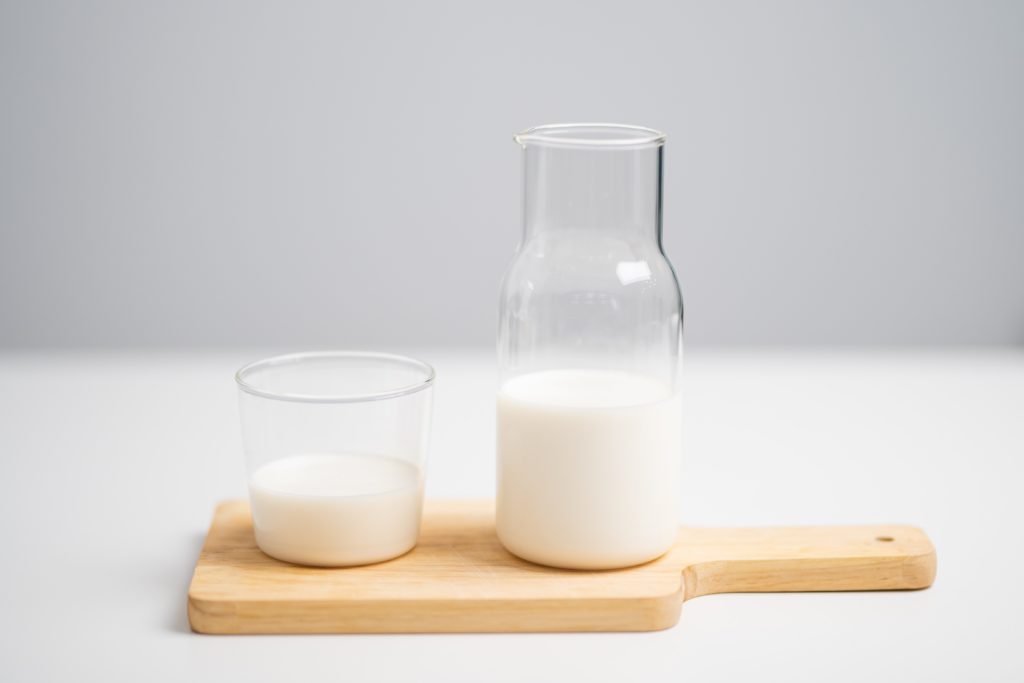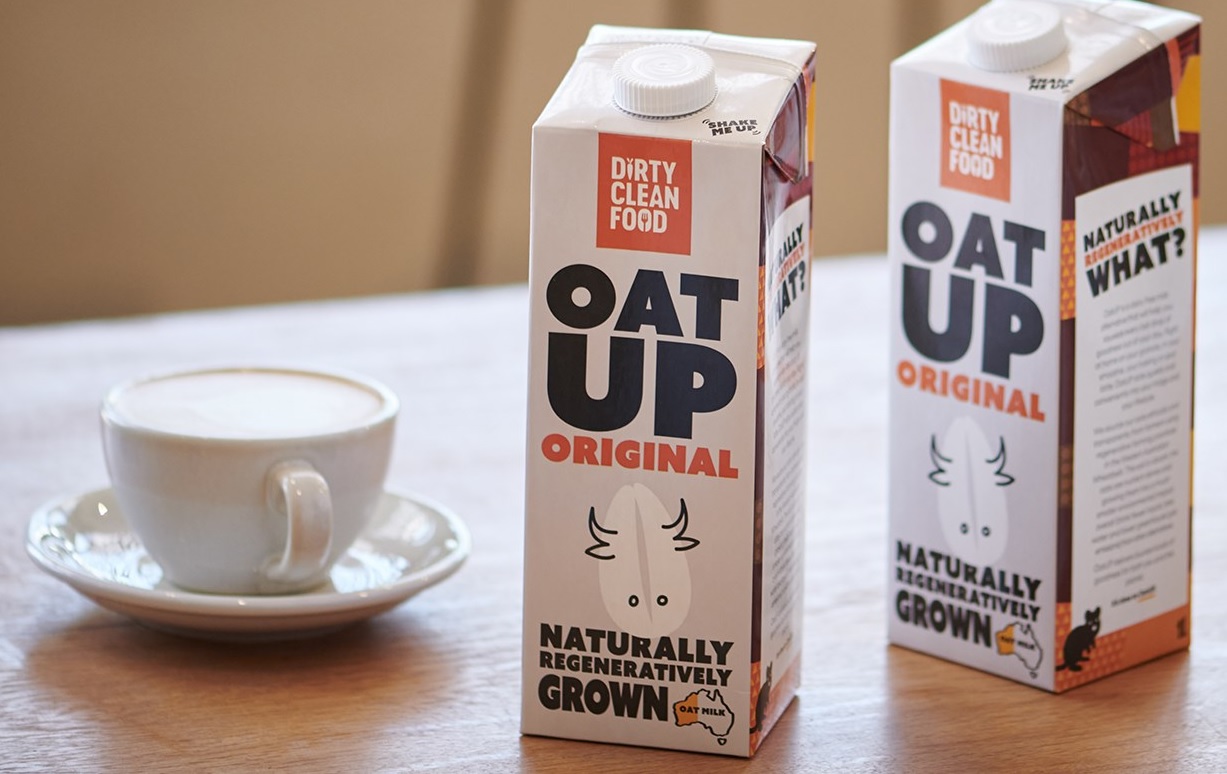Australia’s WOA, the ‘World’s Lowest Carbon Milk’, Raises $20 Million
3 Mins Read
Australia’s Wide Open Agriculture (WOA) announced it has raised $20 million to support a move to domestic plant-based production for its low carbon oat milk. Funding was raised through share purchases, both institutional and individual, and will be used to construct a new manufacturing facility focussed on oat milk. Additional funds will be diverted to support the expansion of a secondary site dedicated to lupin protein development.
Regenerative farming and food producer WOA, which owns Dirty Clean Food and OatUp, has secured $20 million to substantially alter its production methodologies. At present, Dirty Clean Food uses oats imported from Italy, but with a first-of-its-kind specialist factory built in Western Australia, domestic regeneratively farmed oats can be switched in. The company states that this will allow it to create “the world’s lowest carbon plant-based drinks”.

Scaling up to satisfy Australian and Southeast Asian demand
Discussing the potential for expansion, managing director Dr. Ben Cole told Small Caps: “Over the last seven years, we have positioned Wide Open to grow rapidly alongside global consumer demands for healthy, nutritious food and drinks that regenerate the planet.”
He went on to explain that the successful funding will allow for specialist facilities to be built, but also brand awareness. This is particularly sought after throughout Australia and Southeast Asia, with new distribution deals being recently announced in both. An agreement with Woolworths is WOA’s most financially significant development, with the retail giant committing to stocking oat milk in half of its Australian outlets. The deal is estimated to be valued at $750,000 per year. Grow Hub has also signed on to purchase at least $500,000 worth of OatUp in the first year, for distribution throughout Singapore.
As a self-professed leader in regenerative food and farming throughout Australia, WOA considers the move towards low-carbon oat milk as a perfectly aligned business maneuver. “As we increase our plant-based offerings, we know this segment is well aligned with our regenerative purpose and represents one of the fastest-growing and most attractive markets in the food industry,” Cole told AuManufacturing.
While scaling oat milk production through facility construction, WOA will also divert attention and funds to the continued development of lupin protein. With a site selected for a pilot factory, equipment has been preemptively purchased. The aim is for the protein to be added to oat milk to create an enriched product, though commercial release will be dependent on successful R&D, including sampling.

A global appetite for oat milk
Animal-free dairy is undeniably on the rise, with oat milk specifically carving itself a niche as a consumer favourite. Companies around the world are seeking to tap into the tried and tested flavour profile to recreate conventional dairy favourites, without the need for animal agriculture. Lindt, as a prime example, has announced the imminent release of two oat milk chocolate bars ahead of Veganuary. Investors are snapping up existing oat milk brands, as can be seen by the recent acquisition of Florida-based Banana Wave and food giant McDonald’s are getting in on the act as well. It announced the addition of locally made MILKLAB’s oat milk to its McCafé menu in Australia earlier this year.
Conventional dairy is the fourth largest rural industry in Australia, employing around 46,200 people and generating in the region of $4.4 billion in 2019. Predicted to reach a value of $21 billion by 2026, the growing global alt-dairy industry is motivating domestic Australian companies such as WOA, The Alternative Dairy Co., MILKLAB and Australia’s Own to keep offering animal-free alternatives.
Lead image courtesy of WOA.




